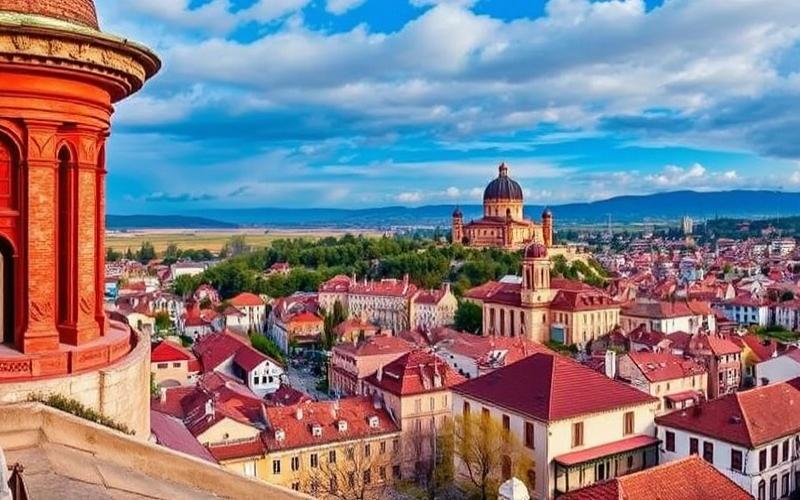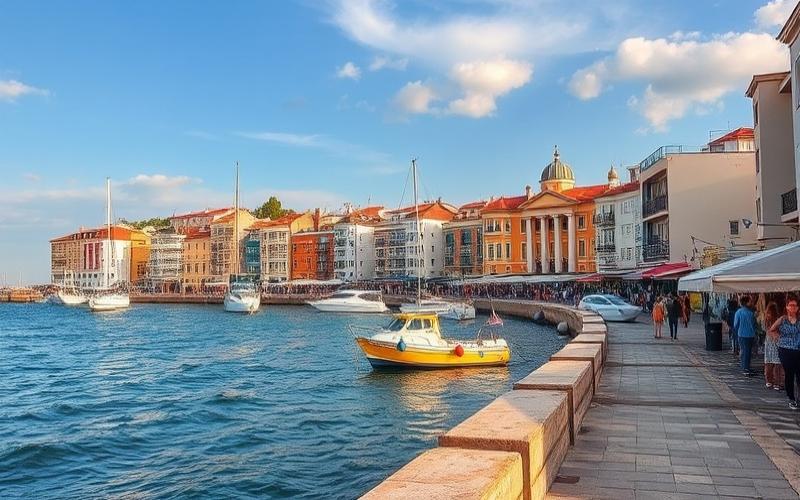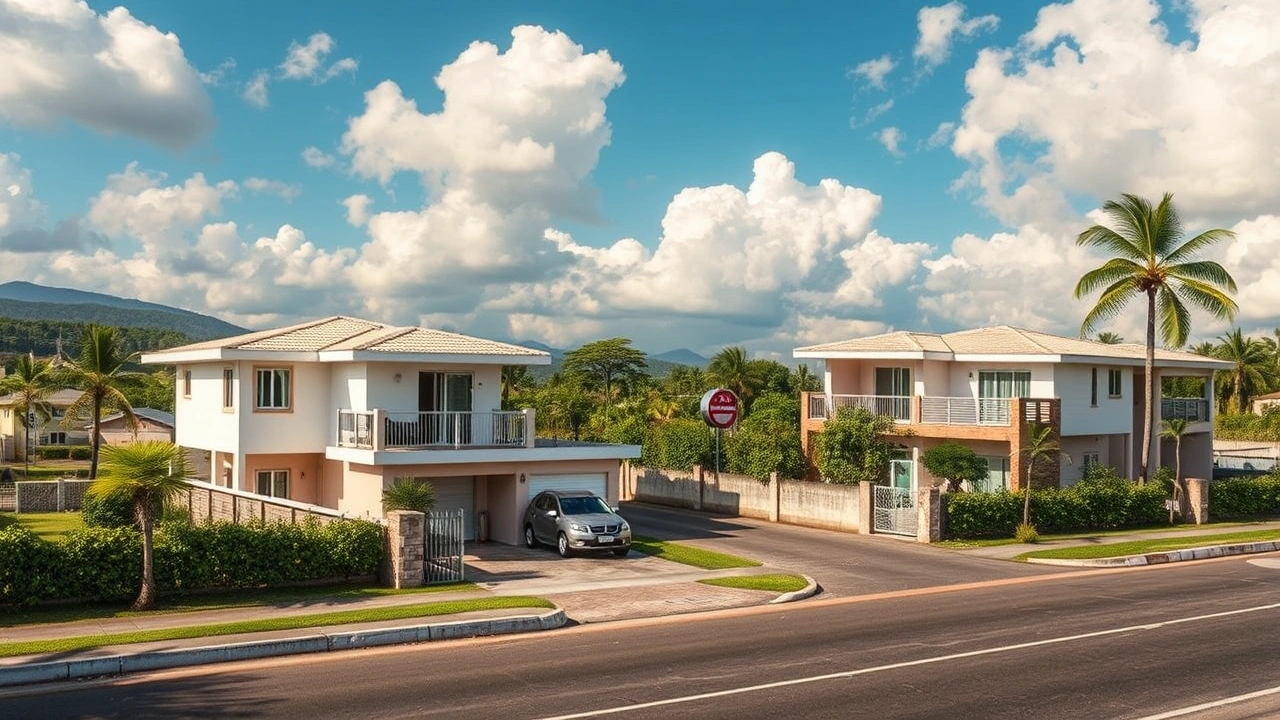
 Published on and written by Cyril Jarnias
Published on and written by Cyril Jarnias
Bulgaria, with its dynamic real estate market and attractive prices, is increasingly attracting foreign investors. Whether you’re looking to purchase a secondary residence on the Black Sea coast or invest in a rental property in Sofia, real estate financing is a crucial step in your project. This article will guide you through the nuances of the Bulgarian mortgage system, giving you all the keys to succeed in your investment.
A Market Open to Foreign Investors
Good news for international investors: the Bulgarian real estate market is largely open to foreigners. Since Bulgaria’s accession to the European Union in 2007, restrictions on property purchases by non-residents have been significantly relaxed. EU citizens enjoy the same rights as Bulgarians regarding property acquisition, while non-EU nationals can purchase real estate through a Bulgarian legal entity.
This openness also extends to financing. Bulgarian banks offer mortgages to foreigners, whether residents or non-residents. However, conditions may vary depending on your status and country of origin. Generally, EU citizens benefit from more favorable terms than non-EU nationals.
It’s important to note that Bulgaria’s mortgage market has experienced significant growth in recent years. According to data from the Bulgarian National Bank, the volume of mortgage loans increased by 10% in 2024, reaching a total of 15.7 billion leva (approximately 8 billion euros). This trend reflects growing confidence in the Bulgarian real estate market and banks’ willingness to support investments in this sector.
Good to Know:
Foreigners can obtain real estate financing in Bulgaria, with more favorable conditions for EU citizens. The mortgage market is expanding rapidly, offering numerous opportunities for investors.
Prepare Your Application: Essential Documents
To maximize your chances of obtaining real estate financing in Bulgaria, preparing a strong application is essential. Bulgarian banks are generally stricter in evaluating loan applications from foreigners, so providing complete and accurate documentation is crucial.
Identity and Residence Documents
- Valid passport or identity card
- Proof of address in your country of residence
- For non-EU residents: Bulgarian residence permit or proof of establishing a Bulgarian company
Income Verification
- Pay stubs from the last 6 months
- Tax returns from the last 2 years
- Bank statements from the last 6 months
- For self-employed individuals: balance sheet and income statement from the last 2 fiscal years
Property-Related Documents
- Purchase agreement or preliminary contract
- Seller’s title deed
- Recent property appraisal by a certified expert
It’s important to note that all these documents must be translated into Bulgarian by a certified translator. Some banks may also require an apostille on foreign documents to guarantee their authenticity.
Additionally, Bulgarian banks place great importance on the applicant’s financial stability. According to a recent study by the Association of Banks in Bulgaria, 85% of mortgages granted to foreigners in 2024 involved borrowers with impeccable credit history in their home country. Therefore, it’s recommended to also provide a credit report from your country of residence if possible.
Good to Know:
A complete and well-prepared application, including translated and possibly apostilled documents, significantly increases your chances of obtaining financing. Financial stability and good credit history are major assets.
Eligibility Criteria: Are You a Good Candidate?
Bulgarian banks have specific criteria for evaluating foreign borrowers’ eligibility. Understanding these criteria will help you better prepare your application and increase your chances of success.
Age and Employment Status
Most Bulgarian banks require borrowers to be between 21 and 65 years old at the time of final loan repayment. Stable employment status is a major advantage. Permanent employees with at least 6 months in their current company are generally preferred. For self-employed individuals, at least 2 years of activity is often required.
Income and Repayment Capacity
The debt-to-income ratio is a crucial criterion. In Bulgaria, most banks require that loan payments not exceed 40% of the borrower’s net income. According to data from the Bulgarian National Bank, the average monthly income of foreign borrowers who obtained a mortgage in 2024 was approximately 3,500 euros.
Down Payment
A down payment is generally required for foreign borrowers. The amount of this down payment typically ranges between 20% and 30% of the property value. Some banks may require a higher down payment for non-residents, up to 40% in some cases.
Guarantees
A mortgage on the property is the main guarantee required by Bulgarian banks. For foreign borrowers, additional guarantees may be requested, such as life insurance or a guarantee from a Bulgarian resident.
It’s interesting to note that, according to a recent study by the Bulgarian National Revenue Agency, foreign investors who obtained real estate financing in Bulgaria in 2024 had an average net worth 2.5 times higher than that of local borrowers. This underscores the importance for Bulgarian banks of the overall financial strength of foreign borrowers, beyond just monthly income.
Good to Know:
Eligibility criteria for foreign borrowers are stricter than for Bulgarian residents. Strong financial standing, a substantial down payment, and additional guarantees may be necessary to obtain financing.
Financing Terms: What You Need to Know
Real estate financing terms in Bulgaria for foreigners can vary significantly from bank to bank. Understanding these terms is crucial to choosing the offer best suited to your situation.
Loan Amount
The maximum loan amount generally depends on the property value and your repayment capacity. For non-residents, Bulgarian banks often limit the loan amount to 70-80% of the property value. According to statistics from the Bulgarian National Bank, the average mortgage amount granted to foreigners in 2024 was approximately 150,000 euros.
Loan Term
The maximum term for mortgages in Bulgaria is generally 25 years for residents. For non-residents, this term is often limited to 20 years. It’s important to note that the longer the loan term, the higher the interest rate is likely to be.
Interest Rates
Interest rates for mortgages in Bulgaria are generally higher than in Western European countries. In 2025, average rates for foreign borrowers range between 3.5% and 5% for loans in euros, and between 4% and 6% for loans in Bulgarian leva. These rates can be fixed or variable, indexed to Euribor or the Bulgarian National Bank’s base rate.
Additional Fees
Don’t forget to account for additional fees that can increase the total cost of your loan:
- Application fees: typically between 0.5% and 1% of the loan amount
- Property appraisal fees: approximately 150 to 300 euros
- Notary and mortgage registration fees: approximately 1% to 1.5% of the loan amount
- Borrower insurance: mandatory, cost varies according to your profile
It’s interesting to note that, according to a study by the Association of Banks in Bulgaria, foreign borrowers who actively negotiated their loan terms obtained interest rates on average 0.3 to 0.5 points lower than initial offers. This underscores the importance of comparing offers carefully and not hesitating to negotiate with banks.
Good to Know:
Financing terms for foreigners may be less advantageous than for Bulgarian residents. It’s crucial to compare offers from different banks carefully and negotiate terms, particularly interest rates and additional fees.
Strategies to Optimize Your Financing
Obtaining favorable real estate financing in Bulgaria as a foreigner requires a strategic approach. Here are some tips to maximize your chances of success and optimize your loan terms.
Work with a Specialized Broker
Using a mortgage broker familiar with the Bulgarian market can be very beneficial. These professionals have in-depth knowledge of different banks’ offers and can help you negotiate better terms. According to a study by the Association of Real Estate Brokers in Bulgaria, foreign borrowers who used a broker obtained interest rates on average 0.4 points lower than those who negotiated directly with banks.
Build a Substantial Down Payment
The larger your down payment, the better your chances of obtaining favorable loan terms. A down payment of 30% or more of the property value can help you negotiate lower interest rates and reduced fees. Additionally, this reassures banks about your financial strength.
Choose a Euro Loan Over Leva
If your income is in euros, it may be wise to opt for a loan in this currency. Interest rates for euro loans are generally lower than those in Bulgarian leva. Additionally, this protects you against exchange rate risk.
Consider Additional Guarantees
Offering additional guarantees, such as real estate in your home country or a guarantee from a relative residing in Bulgaria, can reassure the bank and help you obtain better loan terms.
Prepare a Solid Business Plan for Rental Investments
If you’re considering a rental investment, prepare a detailed business plan showing the potential profitability of your project. Bulgarian banks are generally more inclined to finance well-structured and promising investment projects. According to data from the Bulgarian Ministry of Tourism, rental investments in tourist areas generated an average return of 5.8% in 2024, which can be a strong argument with banks.
Good to Know:
A strategic approach, including using a specialized broker, a substantial down payment, and meticulous preparation of your application, can help you obtain significantly more favorable financing terms.
Pitfalls to Avoid
Investing in Bulgarian real estate can be an excellent opportunity, but it’s crucial to be aware of potential pitfalls to secure your investment and financing.
Don’t Underestimate Additional Costs
Beyond the property purchase price, don’t forget to account for all additional costs related to your acquisition and financing. These costs can represent up to 5-7% of the property price. They include notary fees, registration taxes, bank application fees, appraisal fees, etc. According to a study by the Bulgarian National Real Estate Agency, 22% of foreign investors in 2024 reported having underestimated these costs, leading to subsequent financial difficulties.
Be Cautious with Variable Rates
While variable rates may seem attractive initially, they can increase significantly over the loan term. In a context of rising interest rates, opting for a fixed rate may be more secure, even if slightly higher initially. The Bulgarian National Bank raised its key rates several times in 2024, leading to increased payments for many borrowers who chose variable rates.
Don’t Neglect Borrower Insurance
Borrower insurance is mandatory in Bulgaria and can represent a significant cost. Make sure you understand the terms of this insurance and compare offers. Some banks offer group insurance that may be more advantageous.
Be Wary of Offers That Seem Too Good to Be True
If a financing offer seems too good to be true, it probably is. Be cautious of offers with abnormally low rates or exceptionally flexible terms. Always read the fine print of the contract carefully and don’t hesitate to have the offer verified by an independent professional.
Don’t Ignore Exchange Rate Risks
If you opt for a loan in Bulgarian leva while your income is in euros, you’re exposed to exchange rate risk. A depreciation of the euro against the leva could significantly increase your repayment costs. In 2024, exchange rate fluctuations led to an average 3.5% increase in monthly payments for foreign borrowers who took out loans in leva, according to data from the Bulgarian National Bank.
Good to Know:
Increased vigilance regarding additional costs, choice of rate type, borrower insurance, and exchange rate risks can help you avoid unpleasant surprises and secure your real estate investment in Bulgaria.
Conclusion: Your Real Estate Project in Bulgaria
Investing in Bulgarian real estate can be an excellent opportunity, offering attractive return prospects and a pleasant living environment. However, obtaining real estate financing as a foreigner requires meticulous preparation and a good understanding of the local market.
The key to success lies in a methodical approach: carefully prepare your application, compare offers from different banks, don’t hesitate to use local professionals like specialized brokers, and be vigilant about all aspects of your financing, from interest rates to additional fees.
Keep in mind that the Bulgarian real estate market, while attractive, has its own specificities and challenges. Thorough due diligence and a well-thought-out financing strategy will allow you to realize your project under the best conditions.
With stable economic growth, real estate prices still affordable compared to other European destinations, and booming tourism potential, Bulgaria offers excellent prospects for savvy investors. According to forecasts from the Bulgarian National Investment Agency, the real estate market is expected to continue growing by 5 to 7% annually in main cities and tourist areas in the coming years.
Your real estate project in Bulgaria is within reach. With proper preparation and the right advice, you can turn this opportunity into a concrete and profitable reality.
Disclaimer: The information provided on this website is for informational purposes only and does not constitute financial, legal, or professional advice. We encourage you to consult qualified experts before making any investment, real estate, or expatriation decisions. Although we strive to maintain up-to-date and accurate information, we do not guarantee the completeness, accuracy, or timeliness of the proposed content. As investment and expatriation involve risks, we disclaim any liability for potential losses or damages arising from the use of this site. Your use of this site confirms your acceptance of these terms and your understanding of the associated risks.

































































